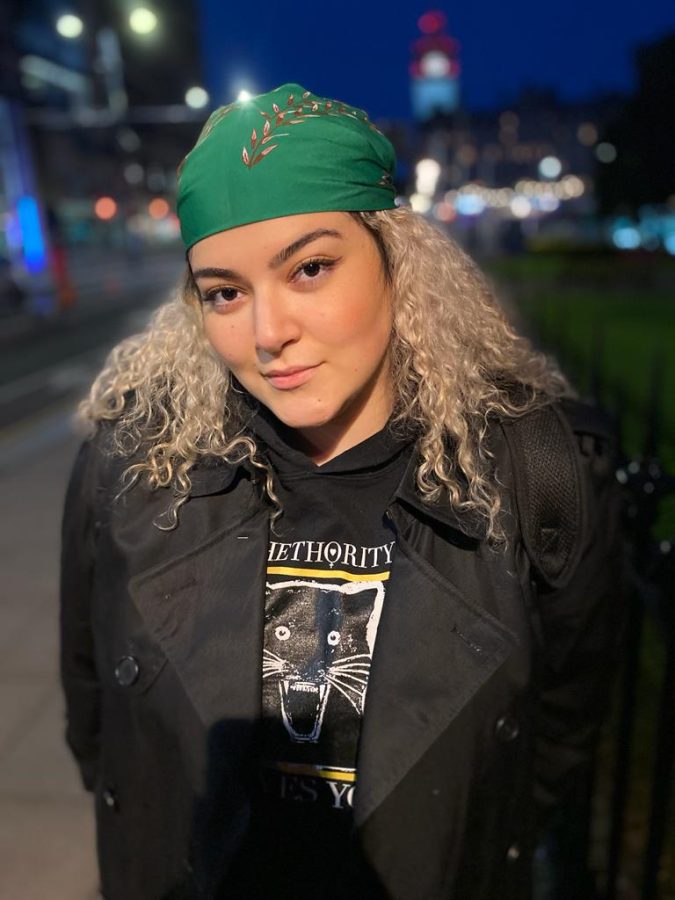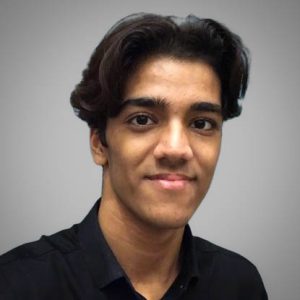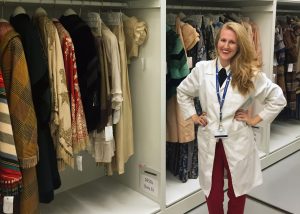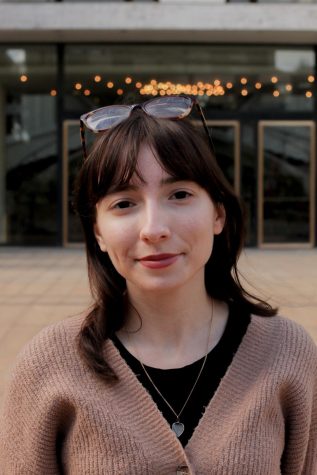A Window Into Soukaina Alaoui El Hassani’s Silver Screen
Fordham alum Soukaina Alaoui El Hassani brings vital representation to her work as an independent filmmaker.
COURTESY OF ANARLYN NUNEZ
Fordham Alum Soukaina Alaoui El Hassani (FCLC ‘18) has won several accolades for her work in the NYC independent film scene.
February 8, 2023
Community and creation seep into every aspect of Soukaina Alaoui El Hassani’s life. She wears a black sweatshirt with the “shethority” above an image of a roaring cat — the merchandise of a collective of actresses who portray DC comic characters and aim to empower women. Alaoui El Hassani, film director, producer and Fordham College at Lincoln Center (FCLC) ’18 alum, transcends what her hoodie represents. She’s not just a Marvel and DC comic fanatic but rather an inspiring force that uplifts traditionally marginalized voices. She wears this sweatshirt as a reminder to bring strong female characters to life and to always do these characters justice.
Alaoui El Hassani grew up in Casablanca, Morocco, until she was 18, when she moved to New York City. She explained that film and television created a world in which none of her turbulent family moments existed. In particular, Alaoui El Hassani recalled how she would recreate films that spotlighted female leads, from “Mulan” to “Xena: Warrior Princess,” with her grandfather when she was young, in which she would gallantly defeat the monster he portrayed. For Alaoui El Hassani, building on these movies with her grandfather allowed stress to fizzle away.
As she got older, Alaoui El Hassani knew she wanted to help people like her by learning to produce media at a California college. However, Alaoui El Hassani’s older sister was living in New York, so her parents decided she should also study in New York. Still, they remained fearful of her going to the United States because of racism, xenophobia and general hostility toward immigrants, especially distrust of Arab and Muslim immigrants.
“You have to delude yourself into believing that you will get there come hell or high water.” Soukaina Alaoui El Hassani, filmmaker and FCLC ’18
The difficulty of moving to the United States, paired with cultural expectations at home, made it daunting for Alaoui El Hassani to realize her dreams, she said. Once she arrived at the Fordham Rose Hill campus, she was able to engage with creative mentors and friends who continue to be supportive of her goals to produce films and television shows to this day. She later transferred to the Lincoln Center campus because of its proximity to her shared apartment with her sister, graduating with a degree in communications and media with a concentration in TV and film.
“I’ve always wanted to be a filmmaker, but I think I finally was able to physically and verbally manifest that desire when I got to college,” Alaoui El Hassani said.
Far From Home
The Fordham community guided and grounded Alaoui El Hassani. She met her friend John Beltre, an English major and FCLC ’18 alum, in their first year at Fordham Calling her a “powerhouse,” Beltre said that once Alaoui El Hassani knew she wanted to make films and television, “she just took it by force.”
Alaoui El Hassani would send scripts she had written to Fordham professors who had taught her, even if she was not taking a class with them that semester. One particular FCLC professor, James Jennewein, would return her scripts with helpful notes. Alaoui El Hassani explained that her professors worked to elevate students’ writing based on what they saw in them rather than forcing them to conform. Among her praises of the nurturing energy she experienced at Fordham, Alaoui El Hassani named mentors such as former Fordham instructor Michael High and current professors James Grimaldi, Amy Aronson and Jennewein.
Jennewein emphasized Alaoui El Hassani’s character, noting her “high energy and imagination” in particular. “She always had that passionate ability to get everybody else excited,” he explained. “That’s a rare quality.” The screenwriter said he admires that “she understands story, but she’s also very strategic in her thinking and can get stuff done in the real world.”
Overcoming Fear
Alaoui El Hassani wanted to see those swirling stories in her head become reality. She said that she hopes that people can gain an “idea of reflecting on the things that you want most out of life and finding that purpose that you want and understanding that your mistakes aren’t an end-all, be-all, that you can always move forward, you can always be better.” Alaoui El Hassani emphasized the importance of individual self-reflection to discover new perspectives and to illuminate how people can show up as poignant forces in their communities.
As an Arab woman in the film industry, Alaoui El Hassani said she often faces microaggressions on set or immediate underestimation over email because of her name. To her, being an Arab and Muslim woman working in a creative industry “means having to work 20 times as hard as the average person, because when you’re an immigrant, you don’t have a network. It’s a lot of patience, a lot of perseverance … and it’s a lot of hope.”
“You have to delude yourself into believing that you will get there come hell or high water,” she said.
Without the support of long-established relationships in the United States, reaching creative success while still standing one’s ground is demanding and can cause Alaoui El Hassani to start seeing problems where there aren’t any. She explained that she often feels as though she cannot be as effective due to a lack of resources that would help production budget and overall film creation.
Alaoui El Hassani believes that you should create what you have been wanting to create without fear, or use the fear to fuel your art.
Despite those who underestimate her, as well as her own imposter syndrome, Alaoui El Hassani is undoubtedly curating a representative and communitarian environment on set and on the screen that will resonate with the Arab and Muslim experience. Her goal is to make the film and television landscape include Arab and Muslim voices. She hopes that little girls can one day sit in front of the screen and marvel at the complexities of their experience set out on the screen and that they can locate safety and hope in Alaoui El Hassani’s art.
“I want to be able to change the dialogue around that we’re not either invisible or hyper-victimized or at the mercy of these white saviors,” Alaoui El Hassani said. “No, no, no — we have personality; we’re strong; we’re so wonderfully complex as everyone else in this world.”
On her way to actualizing these goals, Alaoui El Hassani has been successful at numerous film festivals. Recently, she produced the 2022 short film “FIX,” which won seven awards, including an accolade for best producer at the New York International Film Awards. To Alaoui El Hassani, the awards circuit was more of a reassurance and pleasant surprise rather than a stressful endeavor. She found that after receiving these awards, more project offers filled her inbox, which imbues a freedom of choice into her creative work and the messages she wishes to evoke.
“I have a very hard time celebrating myself, and awards to me, honestly, kind of validate a little bit that I’m on the right track,” Alaoui El Hassani said.
According to “FIX” writer Vincent Van Der Velde, although the film follows a toxic, straight, white relationship, it illustrates the subconscious urge to feel like the better person in any conflict. Based on gender, the audience would normally either say the man or woman in the film was the one in the wrong, but both characters are never perceived as fully good or bad.
“I think one of my favorite things about ‘FIX’ is that it plays with audience perspective. You can see the divide, in opinions and in … what people got from it,” Alaoui El Hassani said. “I strongly believe that an audience is (a) very important part of film experience.”
Alaoui El Hassani also commented on the importance of award ceremonies having diversity on their panels. She explained that when the voters do not look like or resonate with the circumstances of the intended audience, diverse films and shows are less likely to be spotlighted.
“To the other people in the room, it’s not significant, and it’s not impactful, but to everyone else it is,” Alaoui El Hassani said.
This year, one of her favorite award-winning films was “Everything Everywhere All at Once,” directed by Daniel Kwan and Daniel Scheinert. She explained that she connected with the film because it mimicked the generational as well as cultural dissonance she experiences with her parents.
Global Community
Alaoui El Hassani explained that she aims to create with people who understand her and to show others that she understands them — to make people feel similar to how she felt after watching “Everything Everywhere All at Once.” She added that she wants to have “a mostly Arab and Muslim crew that is going to understand this experience, … that is going to understand the culture of coming together and community and creating these impactful films where we change the dialogue around our people.”
For future filmmakers, Alaoui El Hassani believes that you should create what you have been wanting to create without fear, or use the fear to fuel your art. She suggests being “as honest and as raw as you can be” with any story. Finally, she advises finding a filmmaking community that you can collaborate with and that will support you.
Alaoui El Hassani’s next film project is the documentary “Children of Sin,” which will be released in fall 2023.
















